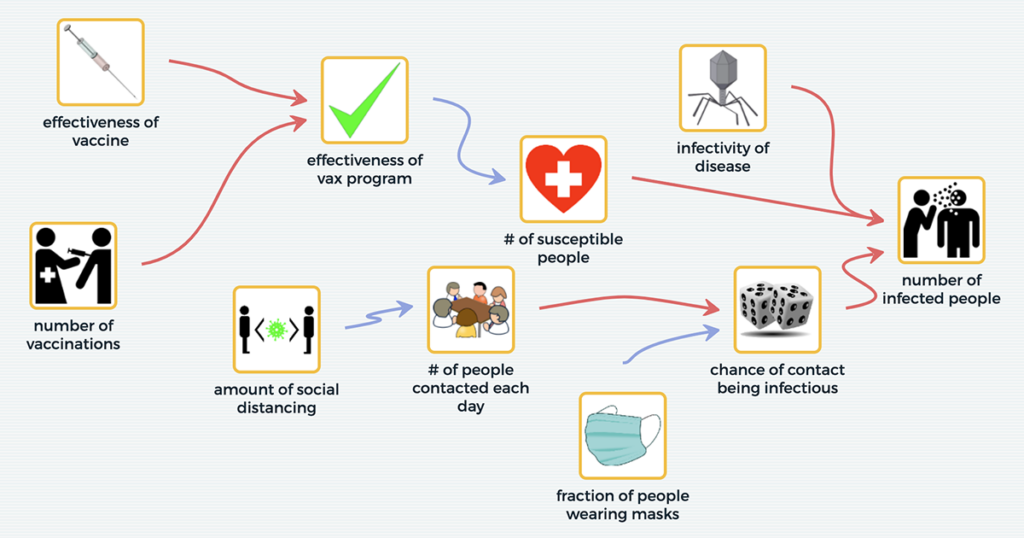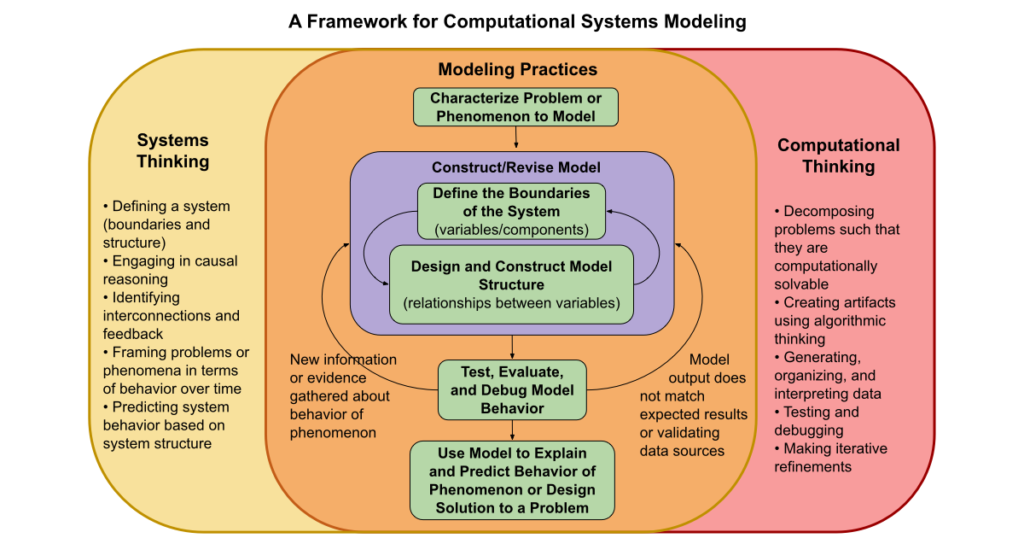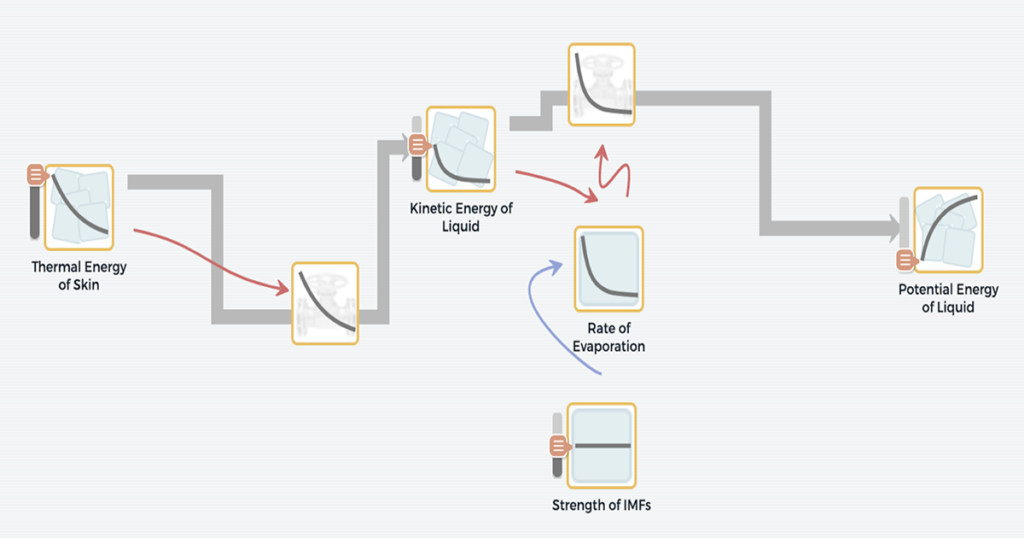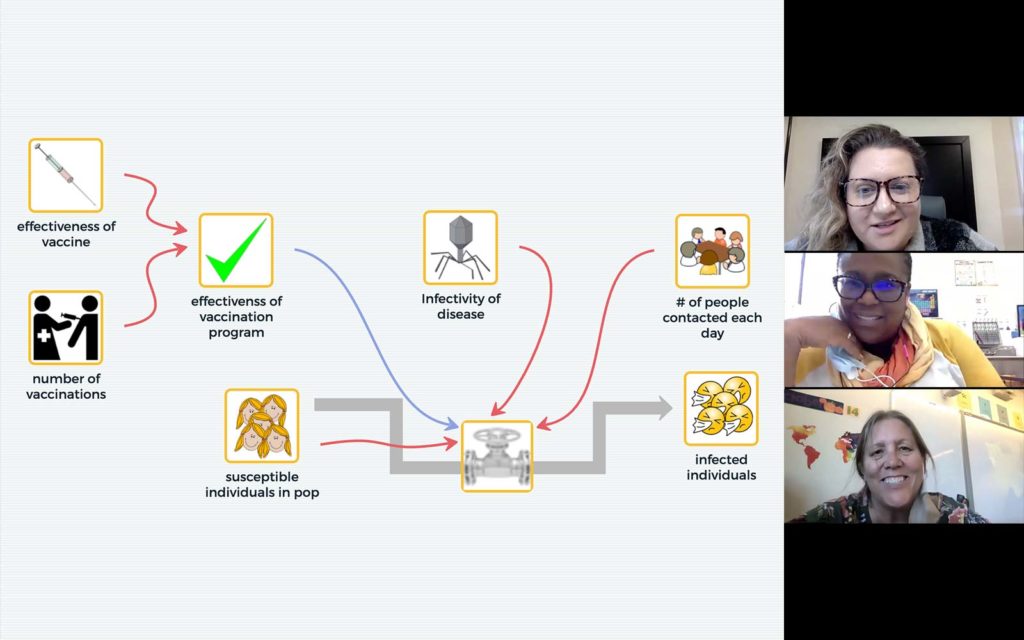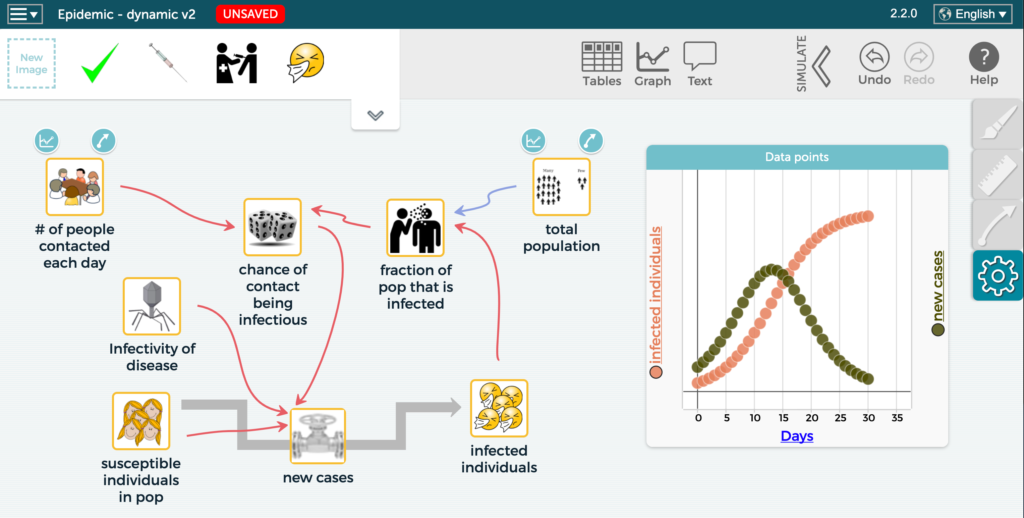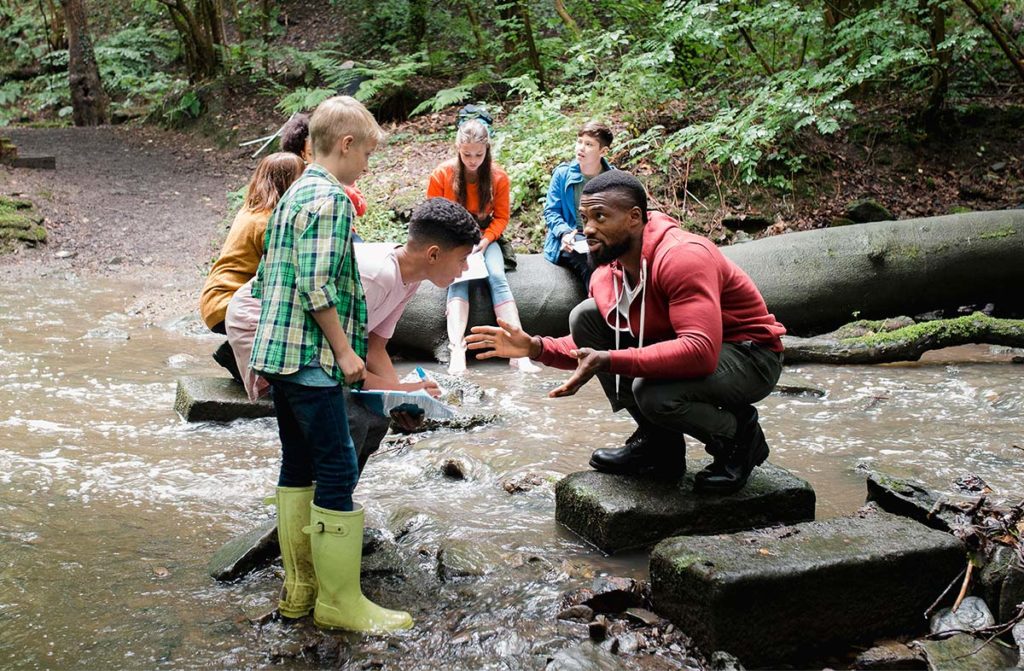Category: Tag: systems-thinking
From local environmental justice issues to global phenomena such as climate change, complex problems often require systems thinking to address them. Since 2018, the National Science Foundation-funded Multilevel Computational Modeling project, a collaboration between the Concord Consortium and the CREATE for STEM Institute at Michigan State University, has researched how the use of our SageModeler […]
Our Multilevel Computational Modeling collaborative project with Michigan State University has developed a novel theoretical framework based on a literature review of modeling, systems thinking (ST) and computational thinking (CT). The framework, which was also informed by years of work developing our SageModeler systems modeling software and researching student modeling, highlights how both ST and […]
Have you ever wondered why, even on a very hot day, you feel cold when coming out of a pool, lake, or sprinkler? The Multilevel Computational Modeling project, a collaboration with the CREATE for STEM Institute at Michigan State University, has developed a new curriculum unit called “Why do I feel colder when I am […]
The Concord Consortium and Michigan State University are collaborating to offer remote professional learning to high school teachers to engage their students in three-dimensional learning using SageModeler for system modeling and computational thinking.
Understanding responses to the current COVID-19 pandemic and solving other pressing global and local problems requires the ability to develop and use models and apply both system thinking and computational thinking. The Next Generation Science Standards (NGSS) include systems and system models as one of the crosscutting concepts, and developing and using models and using […]
The Watershed Awareness using Technology and Environmental Research for Sustainability project project teaches a systems approach to problem solving through hands-on, inquiry-based learning activities based on real national and local data to explore local watershed issues.
The Concord Consortium and Michigan State University are collaborating to research technological, curricular, and pedagogical scaffolds needed to support students and teachers in developing computational thinking in the context of system modeling.
Providing students and teachers with access to scientifically valid and easy-to-use watershed tools to accurately examine their own neighborhoods, to define local environmental problems or challenges, and to develop solutions to improve their environment.
